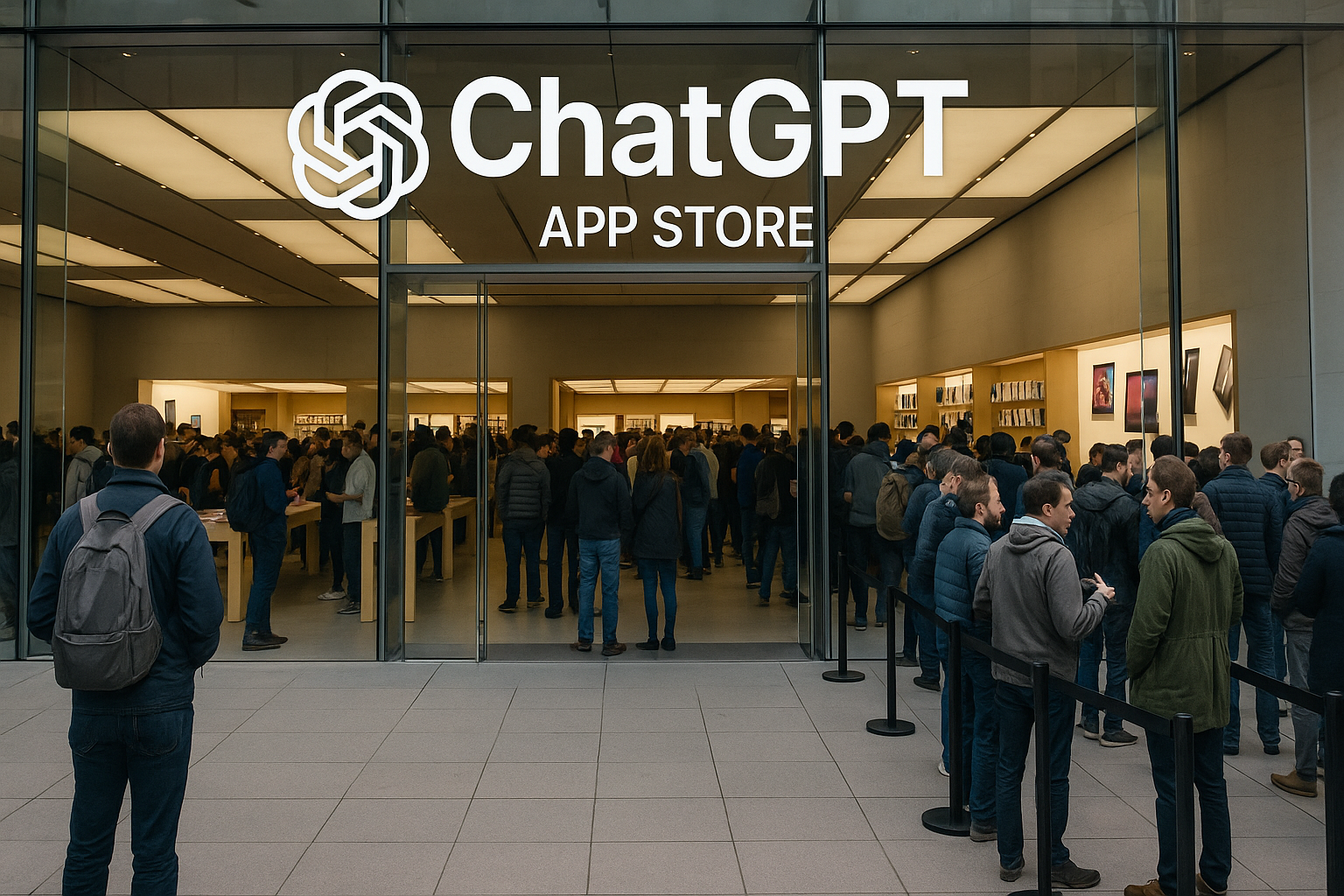Microsoft Azure, AI and You!
Rob Borley
3 min read • 3 July 2024
Microsoft’s integration of OpenAI into its offerings may have made the headlines, but it’s long-term investment in AI was already plain to see in Azure. We argue, with outstanding data science, platform services and analytics capabilities, Azure is the platform to beat for businesses wanting to harness the power of artificial intelligence.
“AI! AI! AI!,” seems to be the tune of most technology companies at the moment, and Microsoft's overwhelming investment in artificial intelligence marks a pivotal shift in its business operations, positioning AI at the forefront of its product development and service offerings. The introduction of Co-pilot across Microsoft’s platforms is not just a feature enhancement; it represents a transformative approach to how businesses and people will interact with digital environments.
Although its recent collaboration with OpenAI has significantly boosted Microsoft's AI capabilities, especially by integrating advanced large language models (LLMs) into Azure's AI infrastructure, it's important to remember that Microsoft has had a longstanding commitment to AI development.
The Azure AI suite; Azure OpenAI Service, can be broken down into a few areas: Data Science, Platform Services and Analytics
1. Data Science
Azure is well-equipped for advanced data-science tasks, offering access to the high-performance GPUs that are essential for running modern computational models. These GPUs are typically both fast and costly; however, Azure provides the flexibility to use this sought-after hardware for short periods through a pay-as-you-go approach. This ensures that model training is cost-effective and optimally priced, making it accessible even for projects with limited budgets.
Azure enhances its data science capabilities by offering comprehensive machine learning pipelines. These pipelines facilitate crucial stages of the data science lifecycle, such as data cleaning, transformation, and testing. By automating these processes, Azure enables users to streamline the preparation of data, ensuring that it is clean, well-structured, and ready for analysis. This automation not only speeds up the process but also helps maintain the accuracy and reliability of data throughout the machine learning project.
Once the models are trained, Azure AI Studio comes into play, enabling the deployment of these models within Azure's ecosystem for wider testing, review and then deployment. The models become accessible through REST endpoints, making integration straightforward for development teams. This setup allows for the seamless incorporation of sophisticated models into various systems, enhancing functionality and streamlining workflows across different applications. These deployed models can also be easily integrated into existing software systems like Microsoft's Service Fabric. By pulling AI models into systems such as Service Fabric, organisations can leverage the full power of Azure AI to enhance real-time decision-making, automate complex processes, and provide more personalised user experiences.
2. Platform Services
Microsoft has long offered a robust suite of Platform as a Service (PaaS) solutions through Azure. These services facilitate the easy integration of pre-trained models and AI capabilities into developer projects, covering a range of functions from image processing to text and audio analysis. Here are some highlights:
Vision: Azure's vision services provide advanced capabilities like face detection and identification, as well as the training of models to recognise domain-specific objects (such as cars, animals, people) in static images or video feeds.
Content Safety: For platforms accepting user-generated content, Azure can help ensure the safety of this data. Content Safety API’s analyse and scan text and images, rejecting those that go against an organisation’s or a project’s predefined safety filters. This Content Safety tool has recently been added to Azure’s OpenAI Service to provide reassurance on the prompts and images used with LLMs.
Search: Azure Search provides an interface for querying a diverse array of data sources, both within and external to Azure. The ability to enrich ingested data with data from AI models makes Azure Search a great portal to aggregate data and get to it with millisecond response times.
Language: Azure's language services extract crucial insights from text, such as identifying key phrases, gauging sentiment, or understanding the language in which it is written and providing language translation. This functionality is particularly useful in processing documents such as forms, enabling deeper understanding and automation at scale.
3. Analytics
In Microsoft Azure, the Analytics component serves as the pivotal point at which the models developed with the Azure Machine Learning/Data Science toolset and the capabilities provided by Platform Services converge. Leveraging the capabilities of Azure Analytics, Microsoft Fabric can orchestrate complex data pipelines that integrate various data sources and ensure a seamless flow of information across the Azure ecosystem.
With tools like Power BI, this data can be transformed into actionable insights. These insights are not just figures and charts; they represent the synthesis of Azure’s machine learning models and platform services, providing a clear, visual representation of data that enhances decision-making across all levels of an organisation. Power BI’s interactive dashboards allow users to explore the data in-depth, applying filters and drilling down into metrics that are most relevant to their specific needs which now, with the help of Co-Pilots, can all be expressed using natural language.
The integration of Azure OpenAI Service with Azure's extensive AI capabilities represents a significant step forward in making powerful AI tools accessible through natural language interfaces. These advances put sophisticated data-analysis tools directly at the fingertips of the decision-makers within organisations.
As we all know better data, properly presented, can be the difference between good decisions and sub-optimal ones. The bottom line is this: if you don’t have these tools at your disposal your competitors will. If you don’t want to cede ground to them and want to explore how AI can transform your performance, Dootrix can help.
AI Assessment
Embarking on your AI journey begins with understanding where you stand today. An AI readiness assessment is the perfect starting point, designed to evaluate your current capabilities and identify areas for integration and growth. We've developed a comprehensive assessment to guide you through this process to help you make the most of this transformative technology
Book your AI Readiness Assessment
Rob Borley

